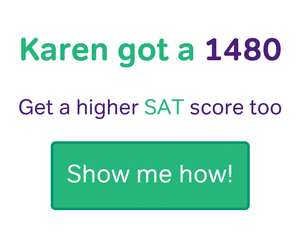There are three topics tested on the new SAT (Reading, Writing and Language, and Mathematics), and we’ve known for a while how these sections will be scored.
But you might be wondering “What are all these other numbers on the SAT score report?”
The new SAT scoring is much more complex than just the section scores. When you take the SAT, you are actually employing several different skill sets, some of which overlap from section to section. The new scoring breakdown is designed to show that overlap.
Let’s take a look at how these scores break down.
Test scores
The first section score is for Evidence-based Reading and Writing. Within this section are included two “test scores”: Reading and Writing. These are scaled scores from 10-40. Together they will translate into your section score out of 800. These are still fairly broad, but will allow you to see if you did better on one part of this section than the other. Math has only one test score.
Subscores
Subscores demonstrate your command of topics that appear within each test. Each subscore is scaled from 1-15.
The Reading test has no subscores of its own, but it shares two with the Writing and Language test:
- Words in Context:
In the Reading test, questions that affect this score focus on the meanings of words within the context of the passages. In the Writing test, you will be asked to replace a word or words with others that more clearly represent the desired meaning.
- Command of Evidence:
This score is based on questions that ask you to choose the best piece of evidence from four parts of a Reading passage or correctly place evidence to support main ideas in Writing test passages.
The Writing and Language test includes two subscores that are not shared with the Reading test:
- Expression of Ideas:
Questions that affect this subscore will ask you to improve the flow of passages or paragraphs by adding or removing sentences or relocating sections of text.
- Standard English Conventions:
This subscore is based on questions that ask you to correct mistakes in grammar and mechanics.
The Math test includes three subscores:
- Heart of Algebra:
Questions that affect this score cover the basics of Algebra with a focus on linear equations, inequalities, and functions.
- Problem Solving and Data Analysis:
The Problem Solving part of this subscore is determined by your performance on one-step or two-step problems dealing with topics such as ratios, rates, percents, and conversions. The Data Analysis part refers to analyzing and using graphs and charts.
- Passport to Advanced Math:
As the name suggests, this score reflects your ability to tackle more complex math ideas, including Algebra 2 and Pre-Calculus topics.
Cross-test scores
Cross-test scores are meant to show how well you’ve mastered skills that are used in all three tests. Therefore, these scores are shared between all tests and both sections.
Analysis in Science and Analysis in History/Social Studies are the two categories of cross-test score. You will see passages that focus on those topics in both the Reading and Writing tests and problems that have historical or scientific contexts in the Math test. The cross-test scores reflect how well you demonstrated skills that are essential to understanding those topics. The scores you receive on these will be on a scale from 10-40, like the test scores.
Here’s a chart to help you visualize all of this information:
| Section scores (out of 800) |
Evidence-Based Reading & Writing | Math | |
| Test scores (out of 40) |
Reading | Writing & Language | Math |
| Subscores (out of 15) |
Expression of Ideas, Standard English Conventions |
Heart of Algebra, Problem Solving & Data Analysis, Passport to Advanced Mathematics |
|
| Words in Context, Command of Evidence | |||
| Cross-test scores (out of 40) |
Analysis in Science, Analysis in History/Social Studies | ||
Don’t let all these different types of scores freak you out. They can provide you with valuable information about how you perform on both practice tests and the real thing. Use them as a guide to focus your test prep on your areas of weakness, and you’ll start to see results in your overall score.






Leave a Reply